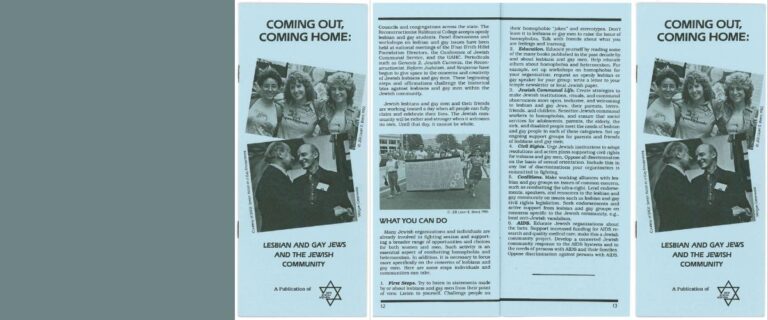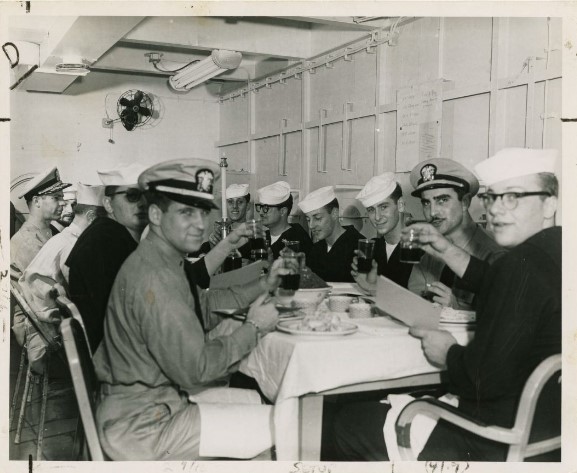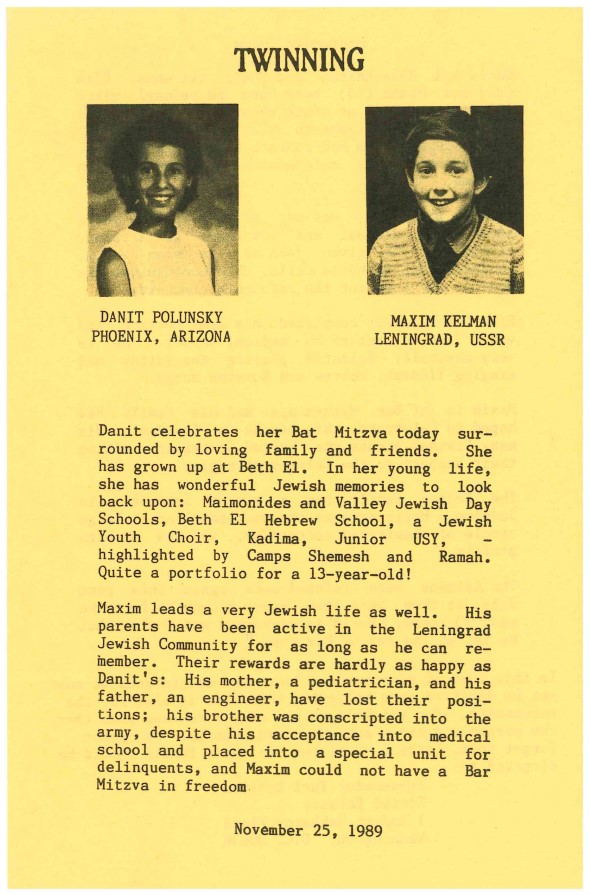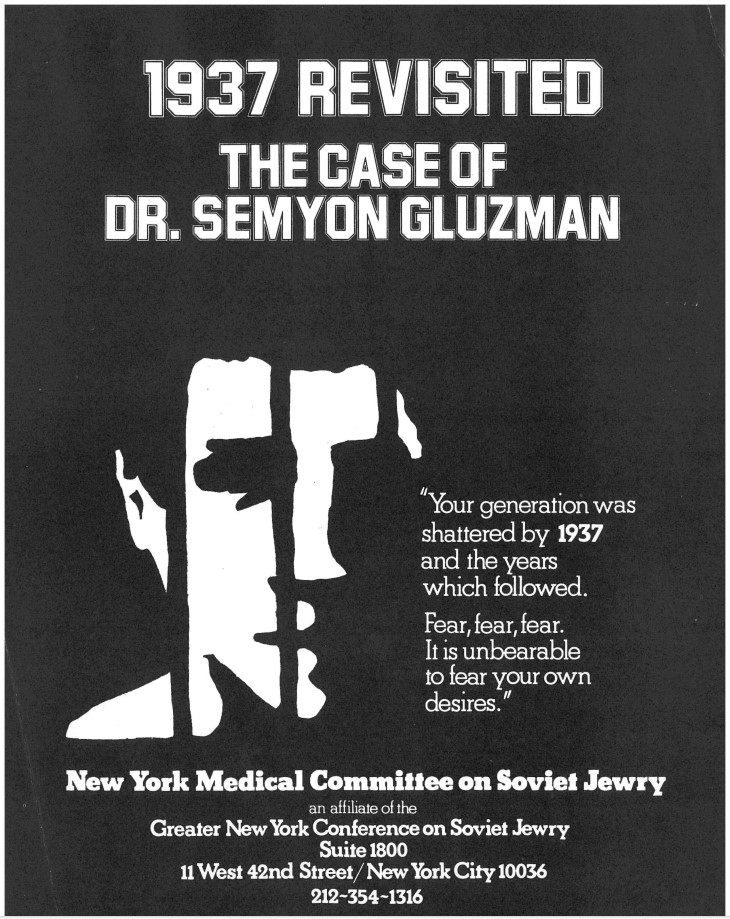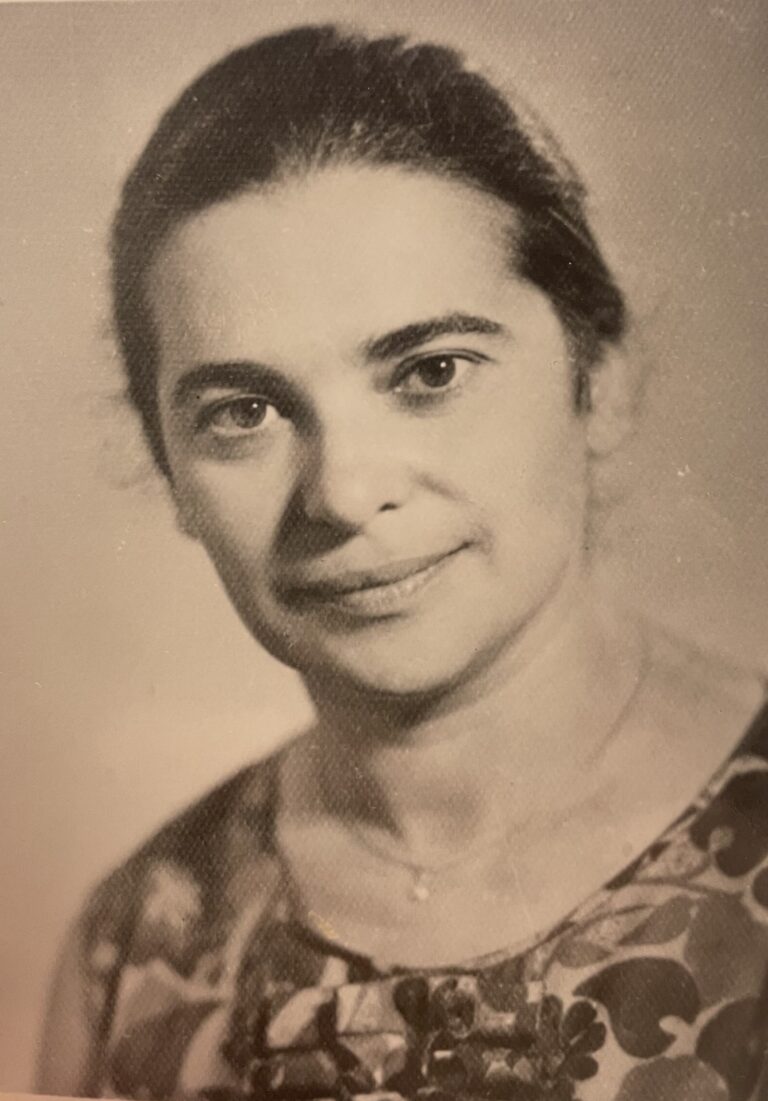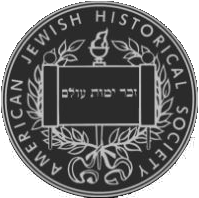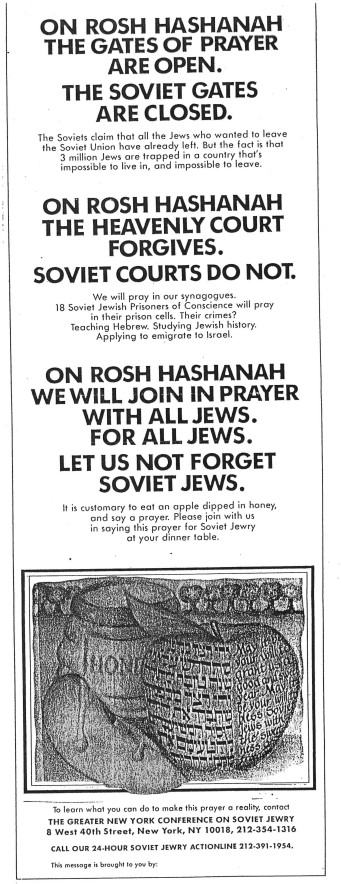
Some of our previous blog posts have focused on AJHS’s recent acquisition of the archives of the Greater New York Conference on Soviet Jewry (GNYCSJ), an organization which served as the coordinating body of more than 85 constituent Jewish organizations and community agencies who spent decades, primarily from the 1960s through the 1990s, advocating on behalf of Soviet Jews who were barred from emigrating from the then-USSR. These individuals, often referred to as refuseniks, were subjected to imprisonment in labor camps, gulags, and prisons, separation from family members, and other manifestations of physical and psychological abuse.
As part of its efforts to advocate for the release of refuseniks, GNYCSJ developed fundraising campaigns centered around the Jewish holidays to engage different audiences in Soviet Jewry activism. To be accessible to broader audiences, some of the fliers and other ephemera produced by GNYCSJ included multiple languages, such as this Rosh Hashanah flier which echoes its English-language message “L’Shana Tovah Tikatevu! Happy New Year! From the Jews of the U.S.A. to the Jews of the U.S.S.R., we have not forgotten you! And we will not forget you!”in Russian and Hebrew. Another flier strikes a more somber note, with blunt statements such as “On Rosh Hashanah the Gates of Prayer are Open. The Soviet Gates are Closed” and “On Rosh Hashanah the Heavenly Courts Forgive. Soviet Courts Do Not.”
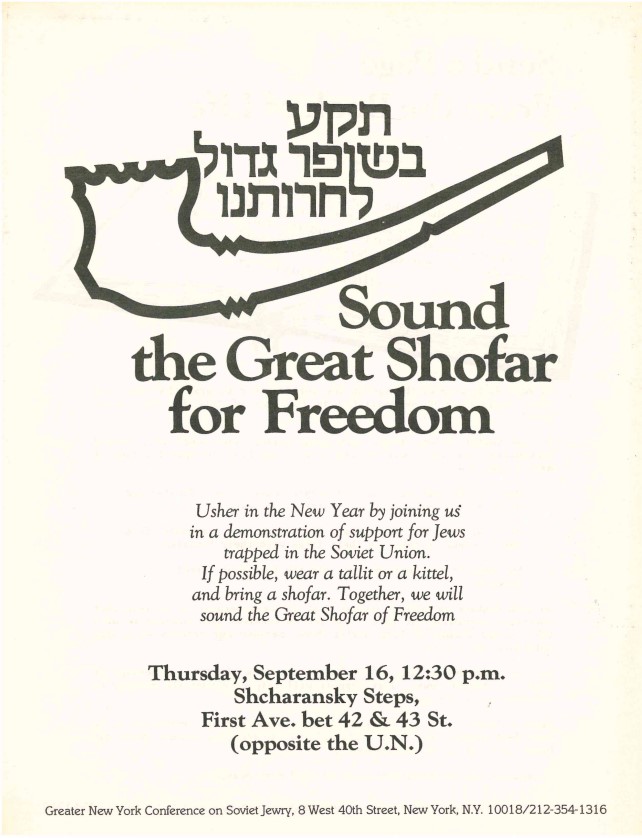
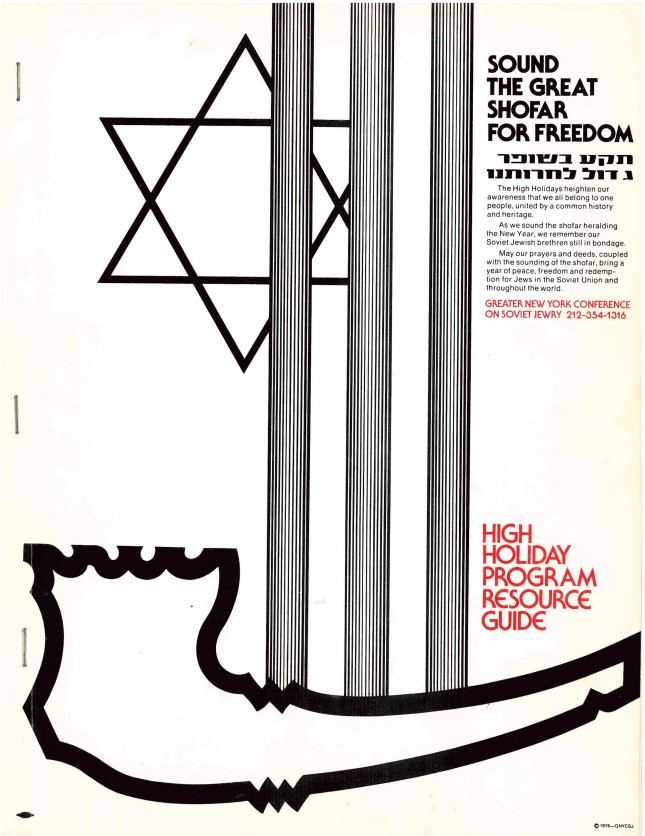
GNYCSJ also assembled and distributed High Holiday educational kits, with content that included an essay by Elie Wiesel on Yom Kippur in Moscow; suggestions for High Holiday sermons focusing on Soviet Jews; and suggested actions to demonstrate support for Soviet Jews, such as calls to attend public protests and directives to write to President Ronald Reagan and Soviet leader Mikhail Gorbachev to demand the release of imprisoned Soviet Jews.
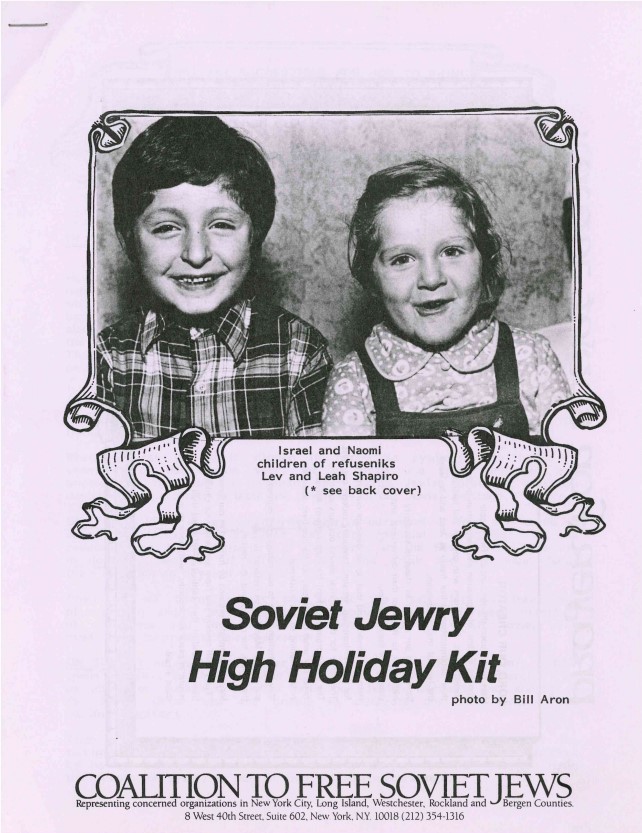
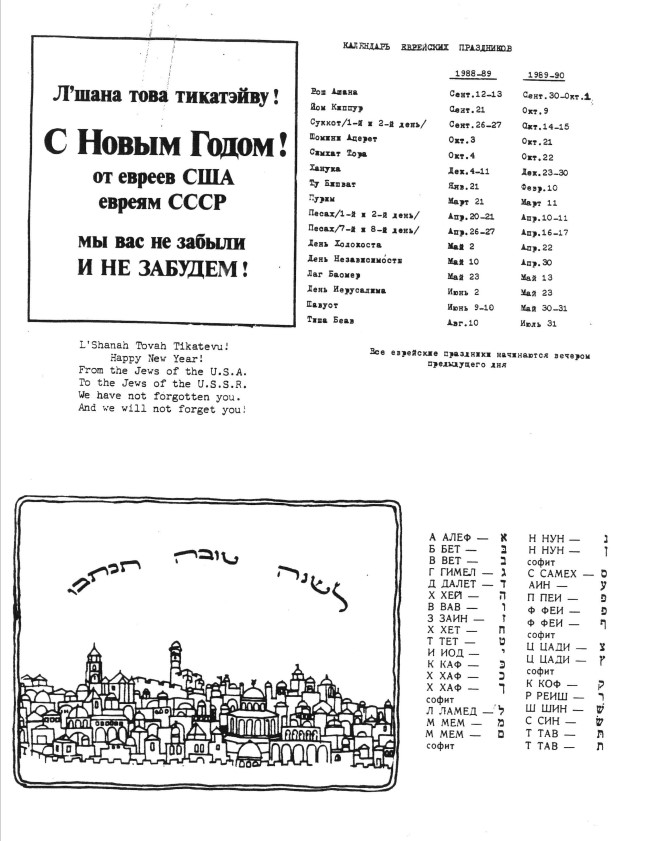
These unique primary source materials demonstrate some of the strategic ways in which this coalition worked raise and sustain awareness about the historic struggles of Soviet Jews and to convey solidarity with fellow Jewish communities behind the Iron Curtain during some of the most resonant times of the Jewish calendar.
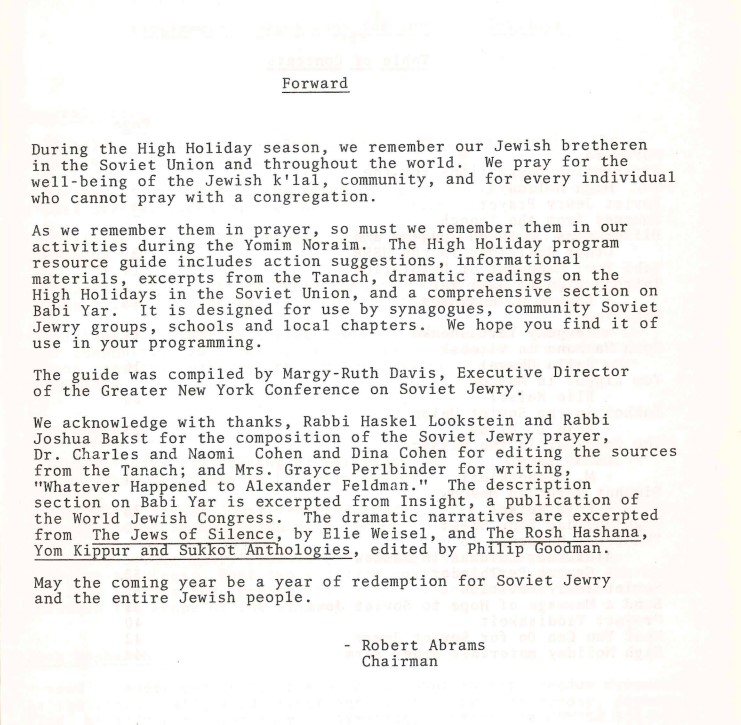
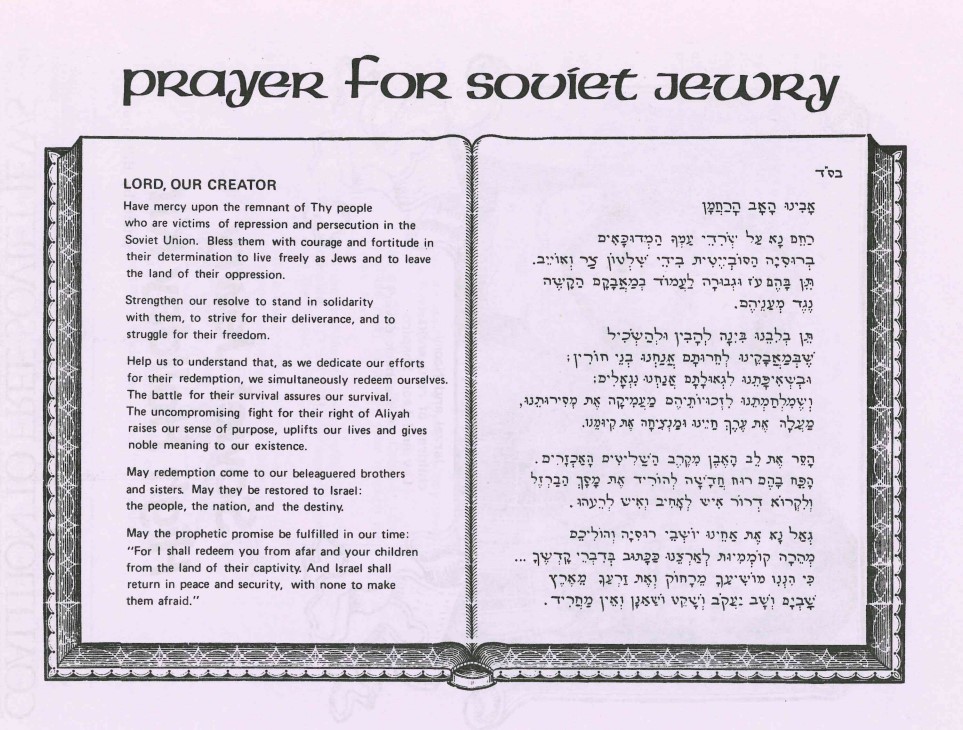
AJHS gratefully acknowledges the support of the National Historical Publications and Records Commission in processing and making available these historic materials.


